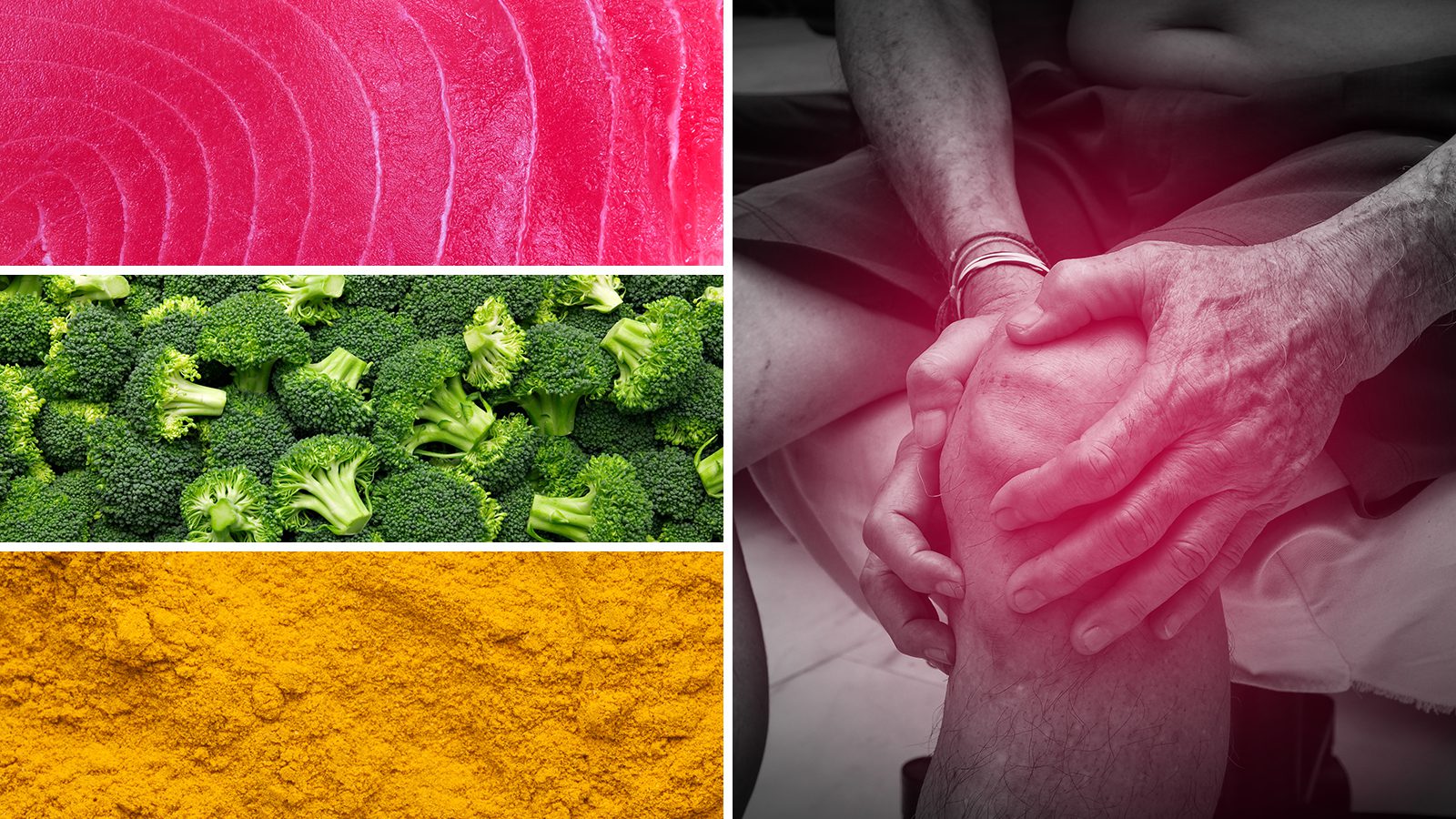Eating well is an excellent anti-inflammatory strategy and one in high demand. Joint inflammation can occur due to several conditions, including inflammatory arthritis, lupus, and injuries. Joints may become swollen and painful as the immune system releases chemicals to fight infection or irritants. It may impact just one joint or cause swelling throughout the body, depending on the cause.
When joints become inflamed, the blood vessels around them dilate so more blood can reach the affected area. Then, white blood cells travel to inflamed joints to kickstart healing. Acute inflammation helps fight off foreign invaders and threats, but chronic inflammation can wreak havoc on the body’s immune system.
In the case of an injury, swelling and pain usually subside after a few days to a week. However, people with persistent inflammation may have to manage symptoms throughout their life using various treatments. Sometimes, a healthy lifestyle that includes a balanced diet can alleviate or reduce the pain from joint inflammation. Below, we’ll discuss a few nutritious foods you can add to your meal plan to promote healthy joints.
6 Foods That Soothe Joint Inflammation
1. Fatty fish
Add fatty fish such as salmon or trout to your diet if you have joint inflammation. These fish varieties have abundant omega-3 fatty acids, which have an anti-inflammatory effect on the body. Researchers proved this in a study of 176 people who ate two or more weekly servings. They found that these participants had fewer disease markers than those who ate less than one serving of fish per month.
Other studies show that eating fish and vegetables as part of a balanced diet can reduce rheumatoid arthritis (RA) symptoms. Fish also contains plenty of Vitamin D, which can benefit people with rheumatoid arthritis since they often lack this nutrient.
If you suffer from joint inflammation caused by arthritis, try eating fish at least two to four times weekly to help manage symptoms.
2. Garlic
Garlic contains high amounts of sulfate, a bioactive component crucial to cartilage production and repair. Studies show that taking garlic supplements can help reduce joint inflammation and other symptoms of arthritis. A survey of 70 females with RA who took a 1,000 mg dose of garlic supplement for eight weeks showed promising results. Participants had reduced joint pain and blood markers for the disease following the study period.
Adding garlic to your meals may also reduce joint inflammation, though studies haven’t yet confirmed this. Still, garlic contains powerful antioxidants and nutrients that benefit your health.
3. Broccoli
Cruciferous vegetables like broccoli also contain large amounts of sulfate. They have a biologically active compound called glucosinolate, which helps reduce inflammation. One study that analyzed the diets of over 1,000 females found that those who ate broccoli regularly had fewer inflammatory markers. Ensure to cook the broccoli by steaming or boiling it, as raw broccoli can cause digestive issues.
4. Walnuts
Regularly consuming walnuts can also help fight joint diseases because of their high alpha-linolenic acid content. This type of omega-3 fatty acid is commonly found in plant-based foods and can reduce inflammation. One study, including 5,013 people, found that those who ate more walnuts had the lowest inflammation levels.
5. Berries
Berries such as strawberries, blueberries, and blackberries contain potent antioxidants called anthocyanidins, which help increase collagen production. Did you know collagen comprises two-thirds of the dry weight of cartilage in the knees and other joints? As the body ages, it produces less collagen, contributing to joint inflammation. Therefore, it’s important to consume it in your diet.
Luckily, berries can help boost collagen in the body and reduce inflammation. One small study found that participants who consumed 40g of dried blueberry powder daily for four months had improved knee osteoarthritis. Strawberries can also help reduce inflammation in those who have knee osteoarthritis, as another study discovered.
The plentiful vitamins and minerals in berries may also contribute to their anti-inflammatory effect. Many studies have linked higher consumption of fruits and vegetables to a reduction in inflammatory biomarkers. If you want to reap the benefits, try adding blackberries, blueberries, or strawberries to your daily diet.
6. Olive oil
Finally, olive oil can help decrease joint inflammation and alleviate arthritis symptoms. It’s a staple in the Mediterranean diet for numerous reasons, reduced joint pain being one of them. Other research shows that certain compounds in olive oil could trigger autophagy, a natural process that eliminates dysfunctional cells from the body. In addition, another study analyzed the effects of feeding mice with extra-virgin olive oil for six weeks. Researchers determined that arthritis development stopped and inflammation decreased during the study period.
Foods That Can Irritate Joint Inflammation
Now that you know about anti-inflammatory foods to consume more often, let’s discuss the foods you should avoid.
- Fried foods
- White bread, pastries, sweets, sugary cereals, and other refined carbs
- Dairy
- Soda
- Fatty meats
- Alcohol
- Sugar
- Saturated fats and trans fats
All these foods and drinks promote inflammation in the body because they’re unnatural. Your body sees these food-like substances as a threat and responds accordingly by releasing inflammatory compounds. Dairy may not cause problems for everyone, but people with lactose intolerance should try to avoid it when possible. Eating plenty of whole, fresh foods such as those we listed above can help reduce joint inflammation and improve general health.
Final Thoughts on Foods that Alleviate Joint Inflammation
Joint inflammation can flare up for several reasons, such as arthritis or a localized injury. Depending on the cause of inflammation, it can spread throughout the body or just one joint. Most people with chronic inflammation need a variety of treatments to manage symptoms. However, a healthy lifestyle, complete with a balanced diet and exercise, can provide some relief.
Foods like berries, olive oil, fatty fish, walnuts, garlic, and broccoli can lower inflammation because of their powerful antioxidant content. Also, fatty acids are crucial for bone and joint health, so eat fish at least several times per week. Joint pain can be debilitating at worst, but these anti-inflammatory foods will help you manage symptoms more efficiently.

















 Community
Community

